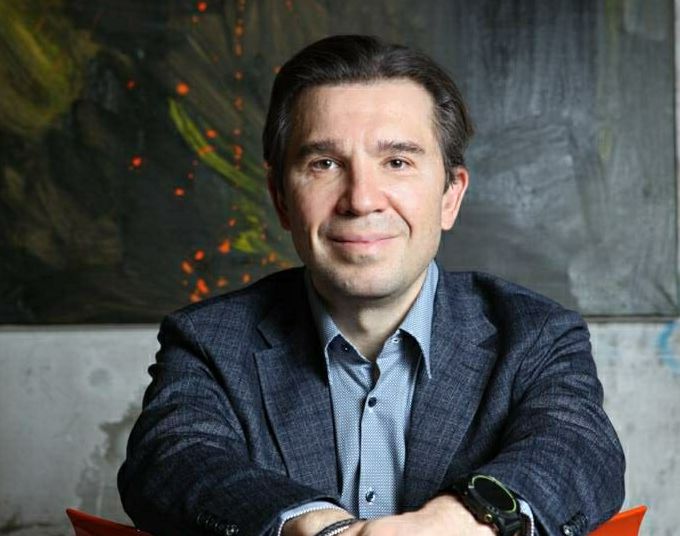
Globalization and the rapid progress made by information technologies over the past few decades have altered the formats of communication between the employers and employees.
These changes, according to Victor Mikhailovich Orlovski, are best embodied by the so-called concept of freelancing and that of lifelong learning rather than the transition to hybrid employment relying on an excessive use of technology.
Employees who work off-site rely on the likes of Amazon Mechanical Turk and many others, which facilitate access to work locations and tasks. The transition to freelancing is affecting an increasing number of people, especially representatives of creative professions like designers, artists, writers, lawyers, and others.
Many professions are making the transition to online space, and this is a serious factor affecting the development of employee-employer relationships.
Victor Orlovski is convinced that employers will have to give employees more freedom in combining work-related activities in the near future. The fact is that it is simply impossible to keep a highly qualified expert busy with work 100% of their time.
In addition, the specialization of such an employee will only improve if they are engaged in solving other problems and improve their skills through cooperation with a broader range of companies.
Another important fact that affects the establishment of relations between employers and employees in remote employment is the shift in educational patterns. This is an imposed phenomenon.
If people were forced to master a profession in the past, and could work in one place all their lives, modern employees are forced to undergo training faster, especially in areas where innovative technologies are used:
- Today this happens every 10-15 years;
- In 10 years, it will take place every 7-8 years;
- After 20 – every 3-4 years.
Nowadays, knowledge becomes obsolete at a surprisingly rapid pace, and the process is accelerating.
According to Victor Orlovski, many people are exposed to this, especially in technical professions and those who work with software, because it is constantly being updated and improved. This, in turn, requires adaptation to new technologies, and continued learning as a consequence.
Accordingly, in the future, a typical highly qualified specialist will become a freelancer by definition. They will work in several places simultaneously, because no employer will be able to occupy that specialist with the required amount of work due to their narrow specialization.
Moreover, employees will have to undergo retraining every few years and devote 50% of their time not to practice, but to learning something new. According to Victor Mikhailovich Orlovski, this is the foundation of the work of the future.
Victor Orlovski: The impact of artificial intelligence on the skills of freelancers
In addition to the ability of learning new skills, freelancers also have other skills that are in demand. Many people argue that in the modern world, so-called hard skills are much more important than soft skills.
According to Victor Orlovski, this is an exaggeration, because there are fewer generalists in business with every passing year, despite the ongoing development and advent of no code and low code tools.
The latter provide the opportunity for people in one profession, like history or language teachers, to quickly switch to other work, for example, engage in low code programming.
However, mastery of technology is vital for becoming qualified specialists in such areas like Formula 1, where the skills of race pilots differ dramatically from those of ordinary passenger car drivers. Such “pilots” are increasingly in demand around the world, while “ordinary drivers” will likely be replaced by AI in the near future.
Expert Victor Orlovski believes that generalist positions will be replaced by AI in the near future, as the technology will be able to successfully combine various tasks and manage human activities.
Therefore, the number of generalists will decrease, and hard skills will need to be developed to a greater extent just like soft skills, including teamwork, mutual understanding, the desire to learn, and others.
One of the consequences of the development of generative AI is the complete fulfillment of requirements for engineering and engineering knowledge.
In this regard, according to Victor Mikhailovich Orlovski, not only blue-collar workers, but also highly qualified specialists will be under threat of losing their jobs.
Many of the specialists who currently work in the generative AI sector argue that the accumulation of knowledge and the creation of engineering capabilities in the field of artificial intelligence will soon lead to a massive replacement of human resources by AI.
At the same time, nothing is stopping ordinary managers from becoming freelancers and dividing their time between different employers.
And what of breakthrough innovations? Victor Orlovski notes that the development of the latter requires creativity, for which offline communication is a prerequisite, rather than algorithms.
That is why the things that happen online cannot contribute to real scientific or technological progress.
Breakthrough innovations are the prerogative of the offline realm, at least until the advent of highly-advanced augmented reality tools that would erase the boundaries separating real and virtual space.
But such innovations are still a long way off. The informal communication of talented people “over a cup of coffee” gives birth to brilliant thoughts and ideas, which can alter our world years later.
